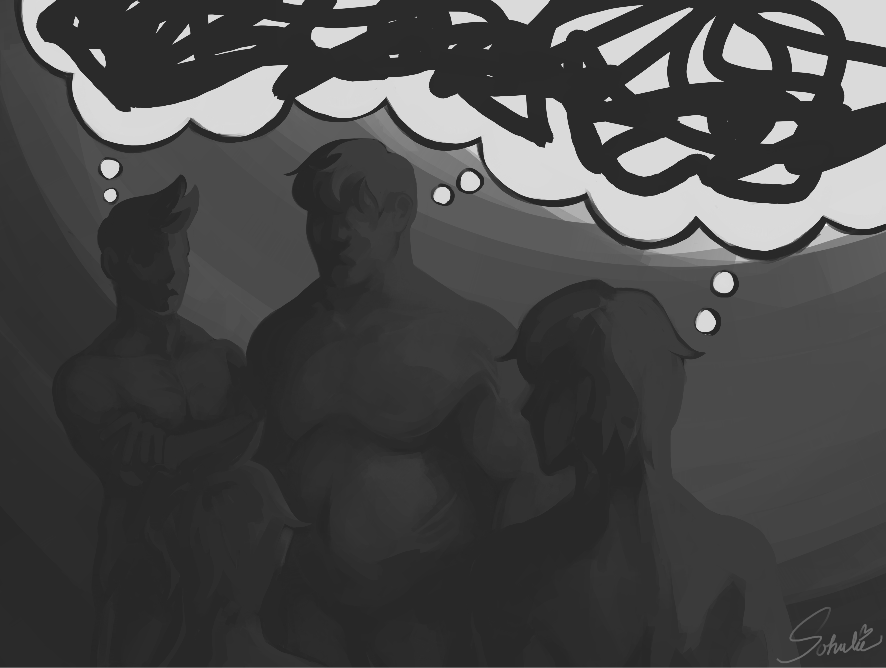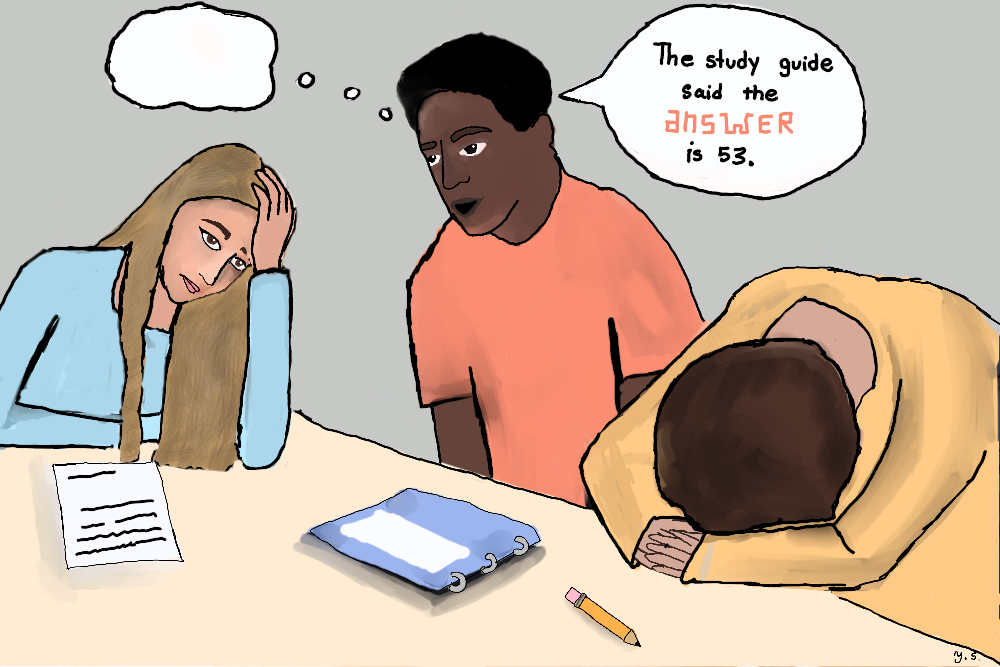As I set my lunch tray down at the table full with the peers I have known since elementary school, I am surrounded by the sound of slurs and snickering.
Wondering how the boys I’ve known for years have regressed into like-minded insensitivity, I pick my tray back up and look for somewhere else to eat.
Although we are taught from elementary school about the dangers of bullying, many people fail to recognize one of the root causes of it among boys: toxic masculinity.
Although there is no all encompassing definition for toxic masculinity, the term generally characterizes the set of behaviors that link masculinity to aggression and the idea of being ‘manly.’ Societal gender norms have perpetuated these ideas in men for generations, and are harmful both to people who harbor these ideas as well as the people interacting with them.
“Culture has portrayed an image of what a man is, and what they should be,” Coppell High School lead counselor Ann Cinelli said. “People feel like they have to live up to that because and if they don’t, they’re not good enough.”
Although toxic masculinity does negatively impact the people who carry this mindset, it is most often other people who bear the full brunt of it. Schools, where young adults are shaped, often perpetuate this mindset through peer pressure and the desire amongst boys to be masculine enough.
On the surface, these interactions may seem harmless, but there is a real risk posed through the bullying and discrimination of these students. In a report published in 2024, it was shown that LGBTQ teenagers consider and make suicide attempts about four times the national rate for adolescents. Although anyone can be the ones bullying these students, it is typically men who are the perpetrators.
When we teach boys such a narrow definition of ‘manliness,’ we also inadvertently teach them that being anything else is inferior.
Toxic masculinity relies on putting others down in order to validate your own masculinity, and is why it inadvertently normalizes casual racism and discriminatory language. In order to feel more ‘manly,’ many boys try to put others down, often by using highly offensive language or slurs.
“We have conflated aggression with masculinity or being powerful,” CHS African American studies teacher SunHee Simon said. “For a boy who’s in high school, maybe in order to fit in with another group of boys, they feel like they need to be rowdy. They feel they need to make inappropriate jokes. They feel the need to be like, ‘I don’t care. I’m going to say whatever I want to say.”
Not only is it inappropriate, but it greenlights a certain type of behavior that is fostered through the use of discriminatory language with peers. It is also important to recognize that we are in a school where the population consists of diverse minorities, and so the use of those slurs is often not by the specific minorities that they come from.
“Especially if we’re talking about things like the n-word, the population of Black people in the school is so low, right?” Simon said. “I don’t want to have a debate on whether or not certain people are allowed to say certain things. We’re all not saying things within this classroom. If I allowed certain people to say those things, what does that mean for other students?”
But over time, verbal discrimination in CHS is improving.
“I think that generations are doing a lot better,” Cinelli said. “This was worse when I was in school than it is now.”
As a boy as well as a CHS student, I have a responsibility to try and change this narrative. I hear my peers and random students perpetuate the bigotry that comes with toxic masculinity on a daily basis. Many people, myself included, oftentimes turn a blind eye to this commonplace mindset, but complacency is complicity.
When I walk into the halls of this school and overhear the language that is fostered everyday, it is my responsibility to be better and work towards a brighter future for CHS.
As a school, it is our responsibility to hold each other accountable, as well as ourselves.
Be mindful of who you keep as friends. Be mindful of what you say to others. Be mindful of how what you say affects others.
Change is not through one person, it is through a collective push for betterment. Improving yourself and encouraging others to follow suit is enough to spark change, even if it begins in one group on one campus. Change needs to start somewhere, no matter how small. If the definition of masculinity is going to change, the people who embody it need to embrace that change.
Follow @hamza_a_zakir and @CHSCampusNews on X.









